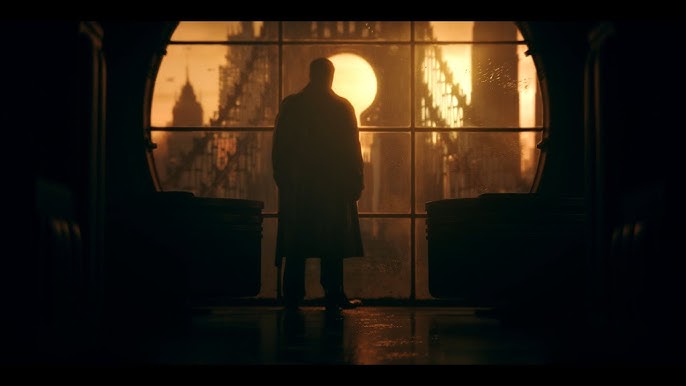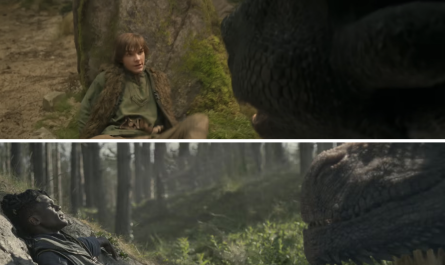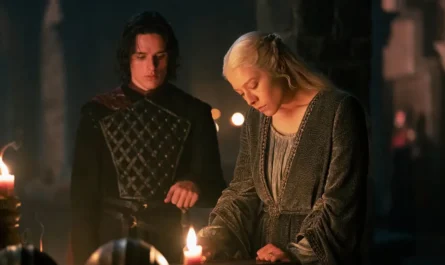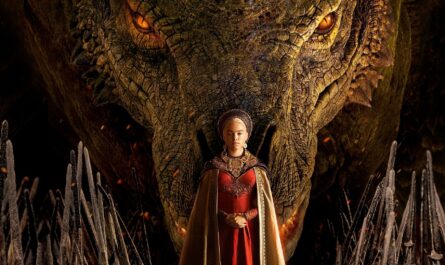Spoiler Alert! This article contains spoilers of The Penguin</p
In a previous article, I talked about how art is not always political but inherently reflective of human experiences. The finale of The Penguin shows this, offering sharp commentary on social inequality, class struggles, and the moral complexities of its characters. The show doesn’t shy away from themes like the myth of meritocracy, the false promise of social mobility, and the deep psychological scars that make villains.
A Reflection on Social Inequality
The finale begins with a familiar discourse on social inequality. Oz, better known as The Penguin, and Victor (Vic) deliver monologues on how systemic barriers prevent social mobility. Initially, I thought this seemedrepetitive, seeing the oversaturation of similar narratives on social media and in modern storytelling. As I kept watching, it became clear this message is all over the media because of its relevance.
The myth of “hard work equals success” persists all over the world, but The Penguin reminds us of its flaws. Unequal opportunities, poverty, and systemic bias often prevent the marginalized from breaking free. Vic’s speech to the Triads shows this, convincing them to rescue Oz by mentioning their shared struggles. Sofia’s plea to her father’s former workers expresses the same, presenting a unity against the elite. These moments, though initially feeling like clichés, mirror society’s current battles with inequality.
Oz’s Dark Evolution
The finale’s real brilliance is rooted in its unexpected twists, particularly in Oz’s relationship with Vic. If you read my earlier article, you’ll remember I predicted Oz’s victory over Sofia—an inevitable outcome, because we know him as Batman’s iconic adversary. However, the method of his victory was shocking. Rather than killing Sofia, he sends her back to Arkham Asylum, taking away her autonomy and power. Shockingly, Sofia reunites with former lover/psychiatrist, Dr. Julian.
Even more surprising was Oz’s decision to kill Victor. This chilling act demonstrates Oz’s acceptance of Victor as heavy baggage, he realizes that love and attachment are vulnerabilities in this business. By murdering Vic, Oz gets rid of his second most significant emotional tie, making sure no one Will exploit his affection. It’s a twisted yet calculated move, reflective of his traumatic past. From Oz’s perspective, this act saves Victor from any suffering he might face at the hands of enemies.
Sofia’s Revenge: A Battle of Psychological Wounds
Sofia’s story is compelling as well. In her attempt to break Oz emotionally, she revictimizes his mother, forcing her to relive the trauma of losing her sons—a tragedy Oz was partly responsible for. Her goal? To shatter his remaining sense of self-worth and avenge her brother’s death.
Sofia and Oz’s toxic relationship is rooted in their shared experience of parental rejection. Sofia recognizes her Electra complex mirrored in Oz’s Oedipus complex, fueling her desire to increase psychological harm. The toughest pill to swallow was from Oz’s mother, who opened up about her hatred for him and denied any sense of pride in his accomplishments. This rejection, more than any physical harm, encourage Oz’s transformation into a cold and ruthless villain.
Villains Rooted in Reality
What sets The Penguin apart from other villain-centric stories is its depth. Too often, villains in superhero tales are shallow and their purpose seems to be the antagonist and nothing more. The Penguin, however, dives into the psychological complexities that make its characters.
Oz’s dysfunctional upbringing, Sofia’s draining relationship with her father, and their shared need to prove themselves are deeply human struggles. These themes resonate because they reflect societal issues: neglectful parenting, toxic ambition, and the never-ending attempts to escape one’s circumstances. The show’s villains are not just evil—they are profoundly damaged, making their actions both horrifying and, at times, understandable.

Victor’s Speech: A Mirror to Modern Issues
Victor’s speech to the Triads stands out for its contemporary relevance. It touches on themes of privilege and systemic oppression, repeating ongoing conversations on social media about nepotism, wealth inequality, and the growing divide between billionaires like Elon Musk or Jeff Bezos and the average person.
What makes Victor’s monologue unique is its delivery by a criminal. From a realistic perspective, it mirrors how real-life criminal organizations exploit societal struggles to recruit vulnerable teenagers and children. Growing up in Mexico, I’ve observed how narcoculture glamorizes cartel leaders, putting them as symbols of resilience and triumph over adversity. This manipulation represents Victor’s speech, making it a critique of how systems of power—both legitimate and illegitimate—exploit social inequality for their gain. In Gotham City, just as in our world, the lines between hero and villain blur. The powerful exploit the weak, and even those who rise above their circumstances are shaped—and often broken—by the systems they sought to escape.
The Final Scene: A Haunting Portrait
The finale’s closing moments are as unsettling as they are symbolic. Oz stands in his penthouse, looking at Gotham City, with his now-vegetative mother lying by the window. This image encapsulates his descent into villainy—a man whose every relationship is driven by control, trauma, and unmet desires.
Oz’s dance with Eve Carlo, his lover and stripper, who is dressed in his mother’s clothing, adds another disturbing layer. It represents his incestuous longing for maternal approval, proving the depth of his psychological issues. Meanwhile, Sofia, confined to Arkham, receives a letter from her half-sister Selina Kyle—better known THE CATWOMAN. This teaser sets up exciting possibilities for future storylines.
The Penguin delivers a finale that is both thought-provoking and emotionally charged. Its exploration of class struggles, psychological trauma, and societal critique sets it apart from conventional superhero narratives. The show’s ability to humanize its villains while reminding us of their evil sides makes it a standout addition to the Batman universe.
As we wait to see what’s next for Oz, Sofia, and Selina, one thing is certain: The Penguin has redefined what it means to tell a villain’s story, making it not just about power and revenge but about the human condition and how fractured humanity leads to fractured measures.






Thank you for writing this post! http://www.kayswell.com
Thank you for being of assistance to me. I really loved this article. http://www.kayswell.com
Thank you for being of assistance to me. I really loved this article. http://www.kayswell.com
I’d like to find out more? I’d love to find out more details. http://www.ifashionstyles.com